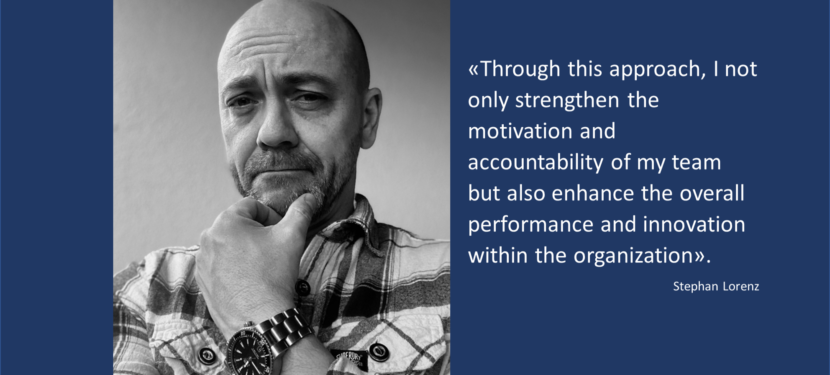💡 Leadership plays a critical role in shaping the success and resilience of any business. However, when weaknesses in leadership go unaddressed, such as a lack of self-awareness, poor communication, or resistance to feedback, they can become significant risks. These shortcomings may hinder team dynamics, stifle innovation, and impair the organization’s ability to adapt to change.
➜ Recognizing and addressing these vulnerabilities is essential to fostering growth, building trust, and driving sustainable business development.
In my experience, leadership comes with immense responsibility: making the right decisions, inspiring and motivating people, and steering the company toward a sustainable and successful future. I’ve come to realize that when weaknesses in leadership, my own included, go unnoticed or are ignored, the consequences can be significant. These weaknesses can affect the team, the culture, and ultimately the business’s growth and success.
🔎 One of the most critical lessons I’ve learned is the importance of self-reflection. When I fail to recognize my own limitations or avoid addressing them, I risk making decisions that might seem effective in the moment but lead to negative long-term consequences. For example, I’ve noticed how an overly directive approach can suppress creativity and initiative among team members. If I dominate discussions or push my agenda too strongly, people hold back their ideas. This not only stifles innovation but also limits the team’s ability to adapt to changing circumstances.
🗣 I’ve also seen how dangerous it can be to ignore weaknesses within the team. Avoiding difficult conversations or shying away from giving constructive feedback only allows problems to grow. This creates situations where some employees feel overwhelmed while others remain underutilized. I’ve experienced how such imbalances can hurt productivity and lower morale. It’s a mistake I’ve worked hard to address by fostering a culture of open dialogue and feedback.
🔭 Another risk I’ve become aware of is the failure to listen to and integrate diverse perspectives. I know how easy it can be to get caught up in my own vision or assumptions. However, I’ve learned that when I neglect the needs and viewpoints of my team, I risk creating conflicts or missing valuable insights. A diverse team offers a wealth of ideas, and tapping into that diversity is essential for making better decisions and fostering collaboration.
🌏 From an economic perspective, I see how leadership weaknesses can impact a company’s bottom line. Without strong, reflective leadership, a business becomes less agile and slower to respond to market changes. Innovation, which I consider one of the most critical assets of any organization, can falter when leadership doesn’t create the right environment for creativity and growth. Poor team dynamics, fueled by unresolved weaknesses, can also drive up costs and erode overall performance.
☑ At the same time, I firmly believe that leadership weaknesses, when addressed openly, can become a source of growth. Recognizing and confronting my own shortcomings has been one of the most powerful ways to grow as a leader. By showing that I’m willing to evolve and learn, I’ve found that I can build greater trust with my team. This approach also sets the tone for a culture of transparency and continuous improvement, which ultimately strengthens the entire organization.
📈 In my view, leadership weaknesses pose real risks to business development. But I also believe they offer opportunities to grow, both personally and as an organization. By facing these challenges with openness and a willingness to improve, I’m confident that it’s possible to transform weaknesses into strengths, creating a more resilient and successful future for the business.
👉 As a coaching leader, I can create a clear advantage by fostering a culture of openness, trust, and continuous development. By viewing my role not just as a decision-maker but as a supporter and guide, I can better recognize and nurture the potential of my team members. I actively engage with their needs and challenges, offering constructive feedback and creating space for self-reflection. I encourage an environment where strengths are further developed, and weaknesses are seen as areas for growth that we tackle together. Through this approach, I not only strengthen the motivation and accountability of my team but also enhance the overall performance and innovation within the organization.
🎯 In today’s increasingly complex and dynamic work environment, this leadership style is especially valuable, as it supports flexibility, adaptability, and a sustainable, values-driven company culture.
🚩 Do you currently have a challenge where you feel you can’t go any further? Would you like to mirror your challenge with a trustworthy sparring partner?
I am at your disposal for a non-binding conversation.
Best regards & take care
Stephan






Pingback:❉ Cultural development through leadership - How leadership shapes the company -